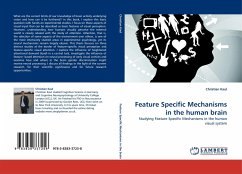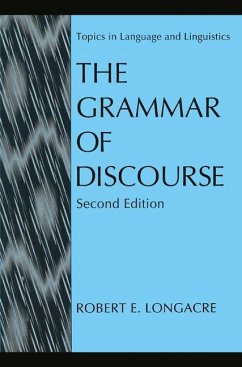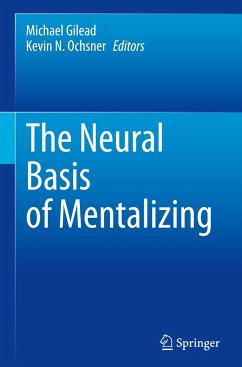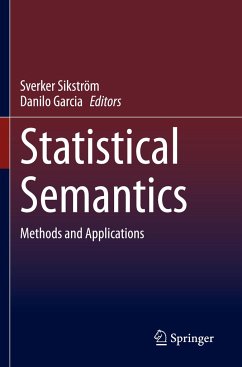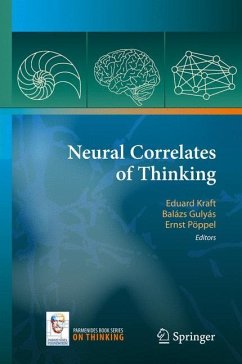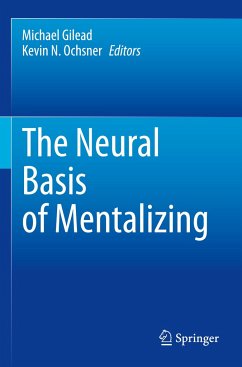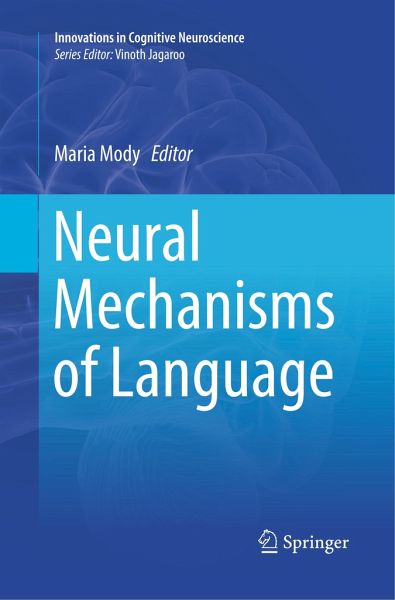
Neural Mechanisms of Language
Versandkostenfrei!
Versandfertig in 6-10 Tagen
83,99 €
inkl. MwSt.

PAYBACK Punkte
42 °P sammeln!
This important volume brings together significant findings on the neural bases of spoken language -its processing, use, and organization, including its phylogenetic roots. Employing a potent mix of conceptual and neuroimaging-based approaches, contributors delve deeply into specialized structures of the speech system, locating sensory and cognitive mechanisms involved in listening and comprehension, grasping meanings and storing memories. The novel perspectives revise familiar models by tracing linguistic interactions within and between neural systems, homing in on the brain's semantic network...
This important volume brings together significant findings on the neural bases of spoken language -its processing, use, and organization, including its phylogenetic roots. Employing a potent mix of conceptual and neuroimaging-based approaches, contributors delve deeply into specialized structures of the speech system, locating sensory and cognitive mechanisms involved in listening and comprehension, grasping meanings and storing memories. The novel perspectives revise familiar models by tracing linguistic interactions within and between neural systems, homing in on the brain's semantic network, exploring the neuroscience behind bilingualism and multilingual fluency, and even making a compelling case for a more nuanced participation of the motor system in speech. From these advances, readers have a more three-dimensional picture of the brain-its functional epicenters, its connections, and the whole-as the seat of language in both wellness and disorders.
Included in the topics:
· The interaction between storage and computation in morphosyntactic processing.
· The role of language in structure-dependent cognition.
· Multisensory integration in speech processing: neural mechanisms of cross-modal after-effect.
· A neurocognitive view of the bilingual brain.
· Causal modeling: methods and their application to speech and language.
· A word in the hand: the gestural origins of language.
Neural Mechanisms of Language presents a sophisticated mix of detail and creative approaches to understanding brain structure and function, giving neuropsychologists, cognitive neuroscientists, developmental psychologists, cognitive psychologists, and speech/language pathologists new windows onto the research shaping their respective fields.
Included in the topics:
· The interaction between storage and computation in morphosyntactic processing.
· The role of language in structure-dependent cognition.
· Multisensory integration in speech processing: neural mechanisms of cross-modal after-effect.
· A neurocognitive view of the bilingual brain.
· Causal modeling: methods and their application to speech and language.
· A word in the hand: the gestural origins of language.
Neural Mechanisms of Language presents a sophisticated mix of detail and creative approaches to understanding brain structure and function, giving neuropsychologists, cognitive neuroscientists, developmental psychologists, cognitive psychologists, and speech/language pathologists new windows onto the research shaping their respective fields.





